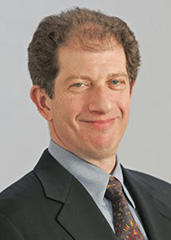From the source: Guest speakers in the classroom
This post is republished from Into Practice, a biweekly communication of Harvard’s Office of the Vice Provost for Advances in Learning.
 David Garvin, C. Roland Christensen Professor of Business Administration,utilizes guest speakers in General Management: Processes and Action in order to promote deeper understanding of managerial and organizational realities. He has experimented with and refined three approaches—Q&A with a case study protagonist, themed presentations and small group conversations with executives, and open-ended conversations with a guest lecturer (often an alum) about their career.
David Garvin, C. Roland Christensen Professor of Business Administration,utilizes guest speakers in General Management: Processes and Action in order to promote deeper understanding of managerial and organizational realities. He has experimented with and refined three approaches—Q&A with a case study protagonist, themed presentations and small group conversations with executives, and open-ended conversations with a guest lecturer (often an alum) about their career.
The benefits: Carefully selected, well-prepared guests provide depth and granularity. For many students, discussion with the actual decision-maker or case protagonist gives a truer sense of their authenticity: “We describe them on paper, now you get to see them in real life, interacting with others, and facing hard questions. Often a guest will share something in class that they would not commit to in writing.”
The challenges: Preparation is key. Garvin often invites case protagonists up to six months in advance, and orchestrates rotations of small group conversations to maximize student and guest interaction. A good physical setup matters, since even careful planning cannot overcome bad acoustics. The same is true of rambling, wayward conversations, which can stumble if framed too loosely: “Without some structure, the essential perspectives did not always emerge as clearly as I had hoped.”
Takeaways and best practices
- Be clear on the pedagogical purpose. Garvin does not invite guests “just to invite them.” He prepares specific conversations and topics that encourage students and guests to wrestle with questions rather than merely draw pre-set conclusions. He typically includes guest content, either live or video, in about a third of his classes. “Less is more, and more likely to create focused discussions. I’d rather hit a few home runs than lots of singles.”
- “Don’t sponsor unguided missiles.” He always provides some guidance to visitors, ranging from a broad discussion of possible student questions to active collaboration in developing a guest’s slide deck. Failing to do so could result in a session that is much less valuable than it could be.
- Provide opportunities for further debriefing. When student feedback suggests lingering questions or controversy, Garvin dedicates time in the following class for further discussion. He also creates video assets of guests’ remarks from both class and a more formal sit-down interview, which can be utilized in future courses (especially when travel is not possible) or for students to revisit.
Bottom line: Guest discussions allow students to contextualize leadership behaviors (team-building, decision-making, crisis management) from the source. The guests, who nearly all agree to return, gain something as well: “They find it very self-revelatory. One former CEO shared, ‘I think I finally understand my job now.’”

